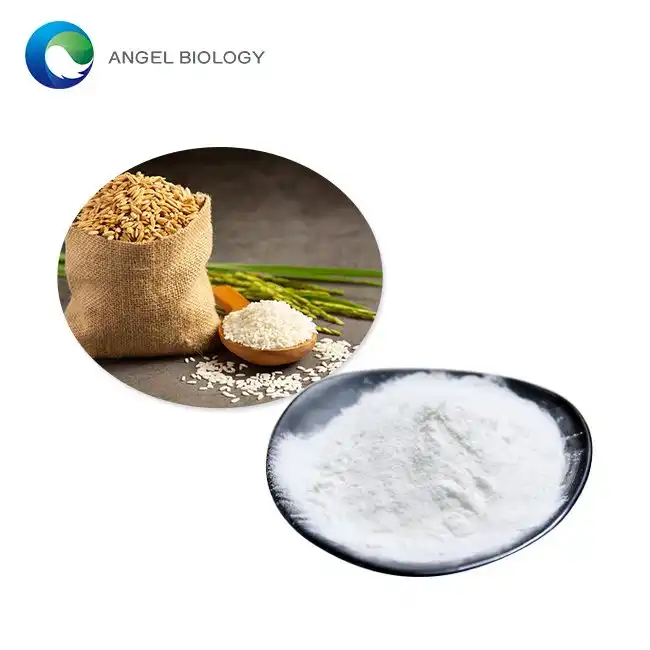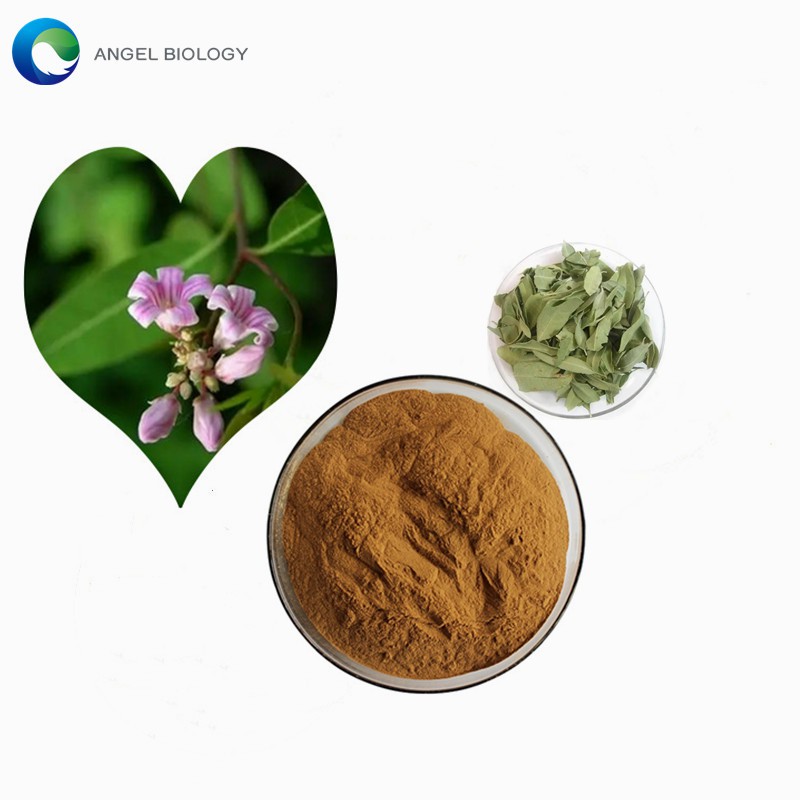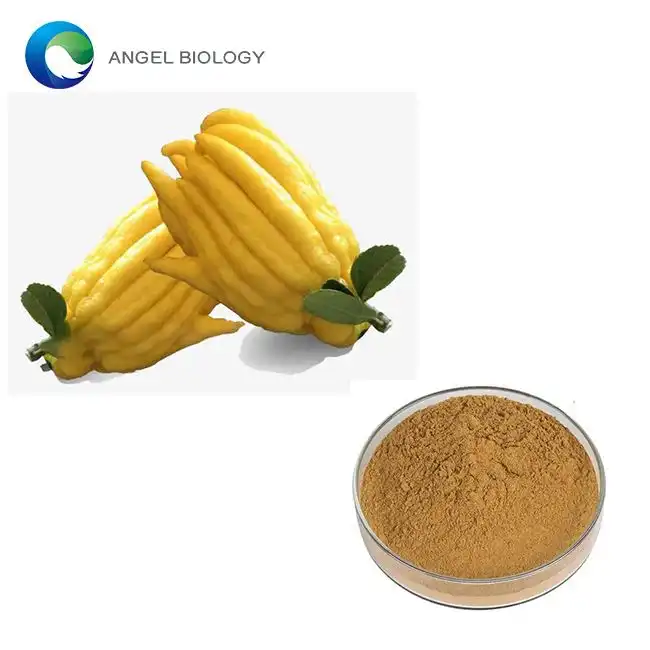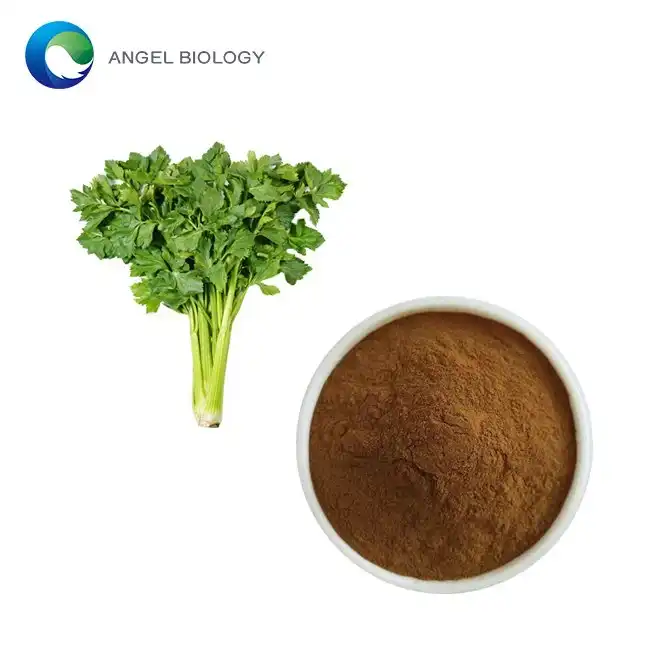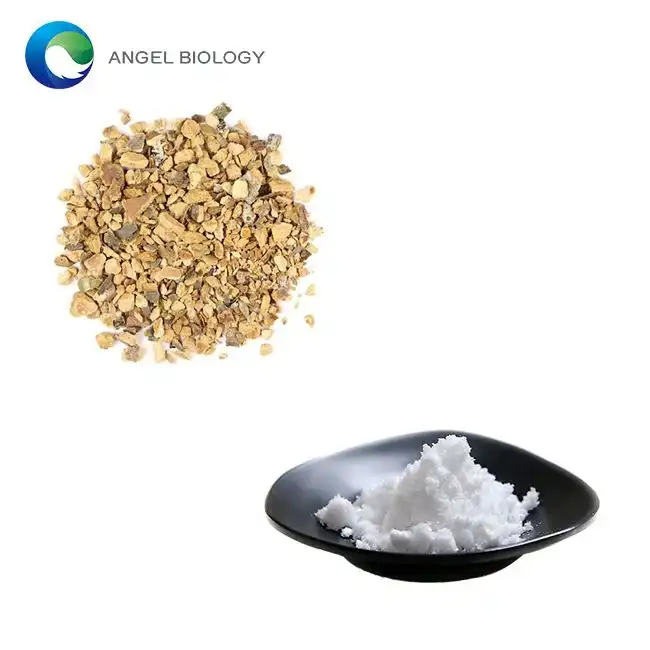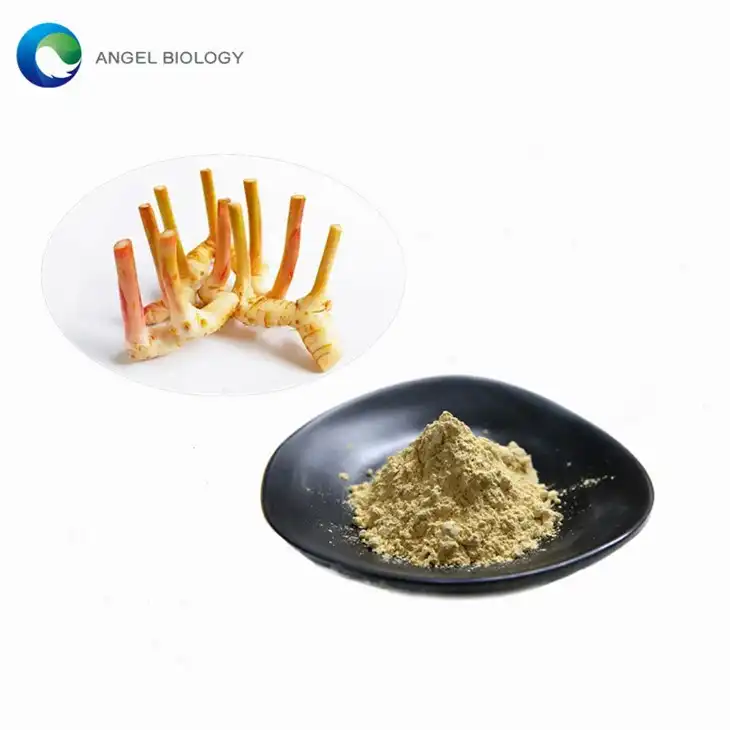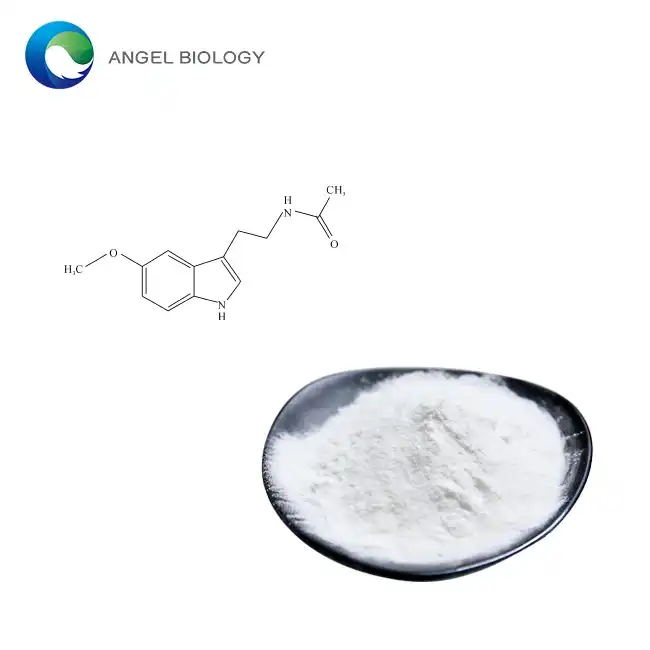Benefits and Active Compounds of Maitake Extract
Maitake mushrooms, scientifically known as Grifola frondosa, have been revered for centuries in traditional medicine practices. Today, modern science is uncovering the remarkable potential of Maitake Mushroom Extract and its bioactive compounds. This article delves into the unique composition and health benefits of this fascinating fungus, exploring why it's gaining attention in the world of natural health supplements.
Exploring the Bioactive Polysaccharides in Maitake
At the heart of Maitake's health-promoting properties lies a group of complex carbohydrates known as polysaccharides. These bioactive compounds, particularly beta-glucans, are responsible for many of the mushroom's beneficial effects on human health.
Beta-glucans are a type of dietary fiber that have garnered significant scientific interest due to their potential immunomodulatory and antitumor properties. In Maitake, these compounds are particularly abundant and structurally unique, contributing to the mushroom's potent biological activities.
One of the most studied polysaccharides in Maitake is the D-fraction. This beta-glucan has shown promising results in various studies, demonstrating its ability to enhance immune system function and potentially inhibit tumor growth. The D-fraction works by activating various immune cells, including natural killer cells and macrophages, which play crucial roles in the body's defense against pathogens and abnormal cells.
immune system function and potentially inhibit tumor growth. The D-fraction works by activating various immune cells, including natural killer cells and macrophages, which play crucial roles in the body's defense against pathogens and abnormal cells.
Another notable polysaccharide found in Maitake is the MD-fraction, which is a more purified form of the D-fraction. Research suggests that the MD-fraction may have even more potent immunostimulatory effects than its predecessor, making it a subject of ongoing scientific investigation.
The SX-fraction is yet another bioactive compound in Maitake that has caught the attention of researchers. This fraction has shown potential in regulating blood glucose levels, making it an interesting area of study for diabetes management.
These polysaccharides work synergistically, contributing to the overall health benefits associated with Maitake Mushroom Extract. From supporting immune function to potentially aiding in cancer prevention and management, the bioactive compounds in Maitake offer a wide range of potential health applications.
What Makes Maitake's Molecular Composition Unique?
While the polysaccharides in Maitake are undoubtedly impressive, they're not the only compounds that make this mushroom special. The molecular composition of Maitake is a complex tapestry of various bioactive substances, each contributing to its overall health-promoting effects.
One of the standout features of Maitake is its rich array of antioxidants. These include phenolic compounds, flavonoids, and ascorbic acid, which help combat oxidative stress in the body. Oxidative stress is implicated in various chronic diseases and the aging process, making Maitake's antioxidant profile particularly valuable.
Maitake also contains an impressive lineup of essential minerals. It's a good source of potassium, which is crucial for heart health and proper muscle function. The mushroom also provides calcium, magnesium, and phosphorus, all of which play vital roles in maintaining strong bones and teeth.
In terms of vitamins, Maitake is notably rich in vitamin D. In fact, it's one of the few food sources that naturally contain significant amounts of this crucial nutrient. Vitamin D is essential for calcium absorption, immune function, and overall health. The ability of Maitake to synthesize vitamin D when exposed to UV light makes it a valuable dietary source of this often-deficient nutrient.
Another unique aspect of Maitake's composition is its protein content. While mushrooms are not typically considered protein-rich foods, Maitake contains all nine essential amino acids, making it a complete protein source. This is particularly beneficial for individuals following plant-based diets.
The mushroom also contains ergothioneine, a unique antioxidant amino acid that's not produced by the human body. Ergothioneine has been linked to various health benefits, including potential neuroprotective effects.
Lastly, Maitake contains a range of bioactive lipids, including linoleic acid and phosphatidylcholine. These compounds play roles in cellular health and may contribute to the mushroom's overall health benefits.
This diverse molecular composition sets Maitake Mushroom Extract apart from many other natural supplements. The synergistic effects of these various compounds contribute to Maitake's wide-ranging health benefits, from immune support to potential anti-cancer properties.
Comprehensive Analysis of Maitake's Nutritional Profile
Understanding the nutritional profile of Maitake is crucial to appreciating its full potential as a health-promoting food and supplement. Let's break down the key nutritional components found in this remarkable mushroom.
Macronutrients:
Maitake is low in calories but high in nutritional value. A 100-gram serving of fresh Maitake contains approximately:
- Calories: 31
- Protein: 2.7g
- Fat: 0.2g
- Carbohydrates: 7g
- Fiber: 2.7g
This low-calorie, high-fiber profile makes Maitake an excellent choice for those looking to maintain or lose weight while still obtaining essential nutrients.
Micronutrients:
Maitake is a rich source of various vitamins and minerals:
- Vitamin D: As mentioned earlier, Maitake is one of the few natural food sources of vitamin D. The exact amount can vary depending on the mushroom's exposure to UV light.
- B Vitamins: Maitake contains several B vitamins, including riboflavin (B2), niacin (B3), and pantothenic acid (B5). These vitamins are crucial for energy metabolism and cellular function.
- Minerals: Maitake is a good source of potassium, copper, and phosphorus. It also contains smaller amounts of zinc, manganese, and selenium.
Bioactive Compounds:
Beyond standard nutrients, Maitake contains various bioactive compounds that contribute to its health-promoting properties:
- Beta-glucans: These complex polysaccharides are the star players in Maitake's immune-boosting and potential anti-cancer effects.
- Ergosterol: This compound is converted to vitamin D when the mushroom is exposed to UV light.
- Grifolin: A unique compound found in Maitake that has shown potential anticancer properties in laboratory studies.
- Ergothioneine: A powerful antioxidant that may offer neuroprotective benefits.
It's worth noting that the nutritional content of Maitake can vary depending on growing conditions, processing methods, and the part of the mushroom used. For instance, Maitake Mushroom Extract may have a more concentrated nutritional profile compared to fresh mushrooms.
The diverse array of nutrients and bioactive compounds in Maitake contributes to its wide-ranging health benefits. From supporting immune function and potentially aiding in cancer prevention to helping maintain healthy blood sugar levels and promoting cardiovascular health, Maitake's nutritional profile makes it a valuable addition to a balanced diet or supplement regimen.
Moreover, the low calorie and high fiber content of Maitake make it an excellent food for weight management. The fiber content can help promote feelings of fullness, potentially reducing overall calorie intake.
It's also worth highlighting Maitake's potential role in bone health. The combination of vitamin D, calcium, and phosphorus found in the mushroom can contribute to maintaining strong, healthy bones. This is particularly beneficial for individuals at risk of osteoporosis or those following plant-based diets who may struggle to obtain adequate amounts of these nutrients.
strong, healthy bones. This is particularly beneficial for individuals at risk of osteoporosis or those following plant-based diets who may struggle to obtain adequate amounts of these nutrients.
The antioxidant compounds in Maitake, including various phenolic compounds and ergothioneine, play a crucial role in protecting cells from oxidative stress. This protective effect may contribute to Maitake's potential anti-aging properties and its role in supporting overall health and longevity.
Lastly, the presence of all nine essential amino acids in Maitake makes it a complete protein source, albeit in small amounts. This can be particularly beneficial for individuals following plant-based diets, as complete plant-based proteins are relatively rare.
In conclusion, the benefits and active compounds of Maitake Mushroom Extract are vast and varied. From its unique polysaccharides to its impressive array of vitamins, minerals, and bioactive compounds, Maitake offers a wealth of potential health benefits. As research continues to uncover the full potential of this remarkable mushroom, it's clear that Maitake has earned its place as a powerful player in the world of natural health supplements.
Are you looking to harness the power of Maitake for your health and wellness journey? Look no further than Angelbio. As an innovative enterprise dedicated to the research, development, and production of high-quality natural ingredients, Angelbio is at the forefront of bringing the benefits of Maitake to you. Our commitment to technology innovation and supply chain integration ensures that you receive the highest quality Maitake Extract, backed by rigorous quality control standards. Whether you're in the healthy food, nutritional supplements, cosmetics, or personal care industry, Angelbio has the expertise to meet your needs. Don't miss out on the opportunity to incorporate this powerful mushroom into your products. Contact us today at angel@angelbiology.com to learn more about our Maitake Extract and how it can benefit your business and customers.
References
1. Mayell, M. (2001). Maitake extracts and their therapeutic potential. Alternative Medicine Review, 6(1), 48-60.
2. Ulbricht, C., et al. (2009). Maitake mushroom (Grifola frondosa): systematic review by the natural standard research collaboration. Journal of the Society for Integrative Oncology, 7(2), 66-72.
3. Wasser, S. P. (2002). Medicinal mushrooms as a source of antitumor and immunomodulating polysaccharides. Applied Microbiology and Biotechnology, 60(3), 258-274.
4. Chen, J. T., et al. (2015). Maitake (Grifola frondosa) D-Fraction induces apoptosis in breast cancer cells by BAK-1 gene activation. Journal of Medicinal Food, 18(3), 325-332.



